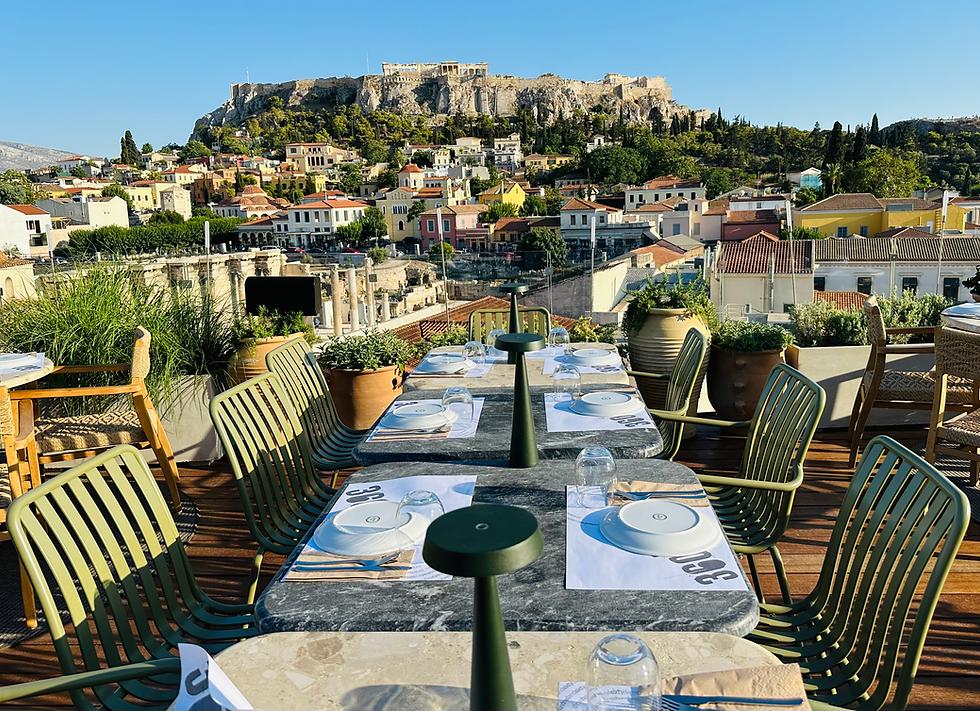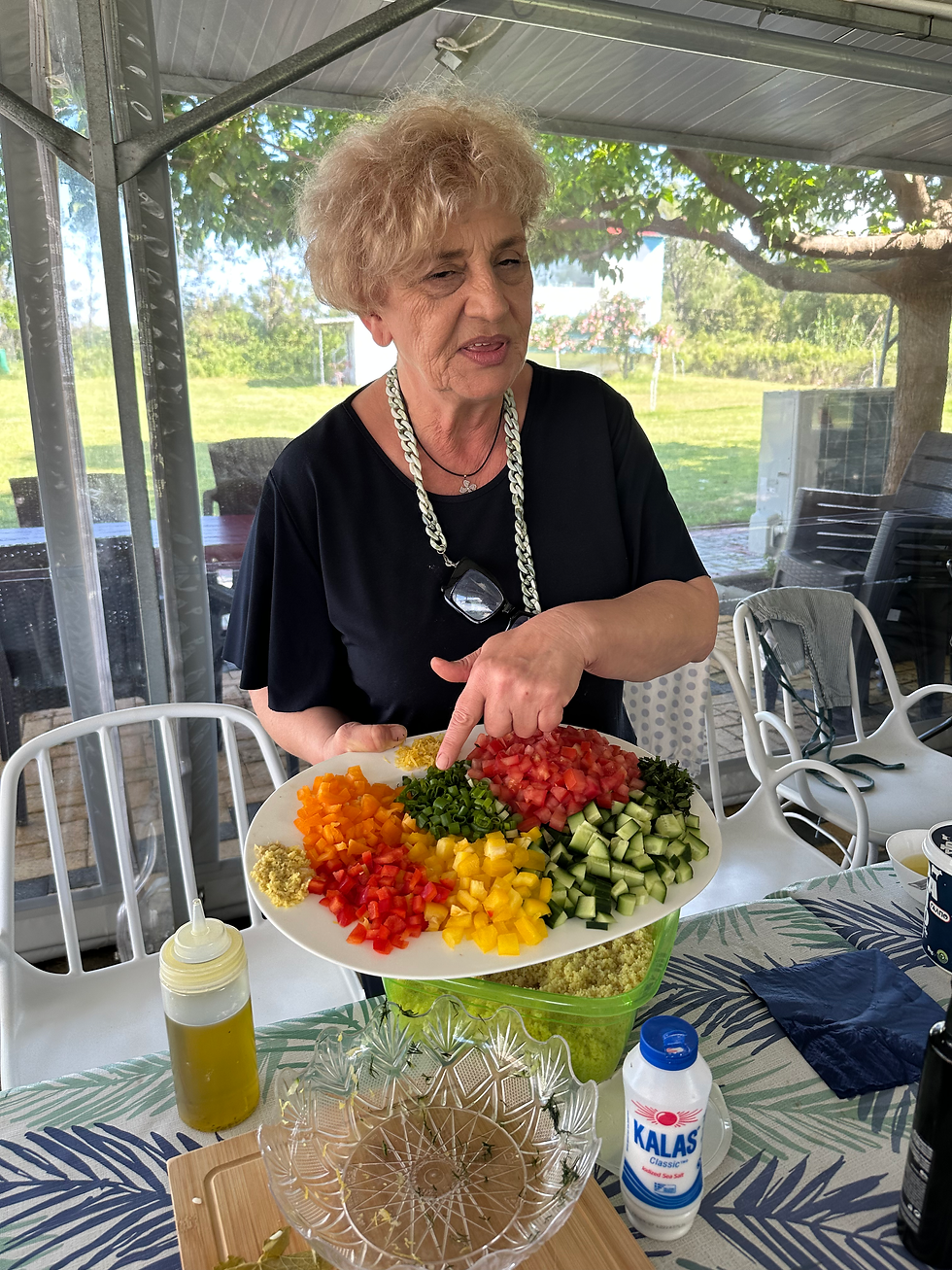Exploring Inclusive Culinary Experiences: Accessible Food Tours in Greece
- Sabine Switalla

- Aug 22, 2025
- 4 min read

Greece is a country renowned for its rich history, stunning landscapes, and, above all, its delectable cuisine. From the tangy flavors of feta cheese to the aromatic spices of moussaka, Greek food is an integral part of the culture. Unfortunately, many food tours have historically been difficult to navigate for those with accessibility needs. However, a new wave of accessible food tours is emerging, allowing everyone to explore Greece's culinary delights, regardless of their physical capabilities.
This blog post will delve into what makes these tours accessible, the variety of culinary experiences offered, and how travelers can make the most of their gastronomic adventure in Greece.
Understanding Accessible Food Tours
The concept of accessibility in tourism encompasses both physical and sensory dimensions. For food tours, this means ensuring that participants can enjoy the full experience without barriers related to mobility or sensory impairments. Accessible food tours in Greece often feature routes that avoid steep inclines or uneven surfaces. Additionally, the pace is usually slower, allowing individuals to take in the surroundings while savoring local delights.

These tours are tailored to provide enriching experiences while keeping an inclusive approach at their core. Whether it's enjoying a cooking class in a traditional taverna or sampling local wines in a vineyard, accessible food tours focus on making every participant feel welcome.
Culinary Delights to Experience
Traditional Dishes
Greek cuisine is diverse and varies by region. Accessible food tours typically include tastings of iconic dishes such as:
Moussaka: A layered casserole made with eggplant, minced meat, and béchamel sauce.
Souvlaki: Grilled meat skewers often served with pita bread and fresh tzatziki sauce.
Dolmadakia: Grape leaves stuffed with rice and herbs, a favorite appetizer.

Tour guides often share stories about the origins and preparations of these dishes, enriching the experience for everyone involved.
Cooking Workshops
Another enticing component of accessible food tours in Greece is the opportunity to participate in cooking workshops. These classes, often held in local kitchens or open-air venues, cater to various levels of ability, ensuring everyone can join in.

Guided by experienced chefs, participants can learn to prepare traditional Greek dishes using fresh, local ingredients. Stations are designed with accessibility in mind, featuring various height options and adaptive tools, ensuring that everyone can partake in the culinary creation process.
Local Markets
Visiting local markets is a staple of food tours, and accessible options ensure that everyone can participate. Wander through the vibrant stalls filled with olive oils, spices, and fresh produce with ease. Many tours are designed to accommodate wheelchairs and mobility aids, allowing travelers to explore these bustling spaces without limitations.

Guides typically offer insights about special ingredients and their significance in Greek cooking, making it an educational experience as well.
The Role of Guides
A crucial component of accessible food tours is the role of knowledgeable guides. These individuals are trained not only in guiding participants through the culinary landscape but also in understanding the specific needs of guests with disabilities.
Guides provide personal assistance as needed, ensuring safe navigation and a comfortable experience for all participants. They are also skilled in sharing interesting stories about the food culture and local traditions, enriching the culinary journey.
Tips for Joining an Accessible Food Tour in Greece
For those interested in experiencing Greek cuisine in an inclusive manner, here are some practical tips:
Research Options: Start by looking for local companies that specialize in accessible food tours. Read reviews and check for services that cater specifically to mobility or sensory needs.
Communicate Your Needs: When booking a tour, don't hesitate to inform the provider of any specific requirements. Whether you need a wheelchair-accessible vehicle or have dietary restrictions, ensuring clear communication can enhance your experience.
Explore Various Regions: Greece is home to diverse culinary influences, from the islands to the mainland. Consider tours in different areas to explore a variety of flavors.
Timing Matters: Certain times of the year are busier for tourism in Greece. Opting for off-peak seasons can result in a more relaxed journey and easier access to various venues.
Join Guided Experiences: Opt for guided experiences over self-directed tours. Guides can provide valuable in-the-moment insights and assistance, making the culinary journey smoother.
Conclusion
Accessible food tours in Greece are paving the way for inclusive travel experiences centered around the rich culinary heritage of the country. These tours are designed to ensure that everyone, regardless of their physical abilities, can savor the tastes, aromas, and stories behind Greek cuisine.
By focusing on accessibility, these culinary adventures not only celebrate the food but also foster community and promote understanding among diverse travelers. As you plan your next trip to Greece, consider taking part in an accessible food tour, where every dish tells a story and every experience is created for all to enjoy.
Whether it’s the vibrant bustle of a local market, the intimate setting of a cooking workshop, or the delicious bites of traditional dishes, accessible food tours offer something for everyone. Get ready to embark on a journey through Greece’s culinary landscape, knowing that no one is left behind in the pursuit of flavor and connection.




Comments